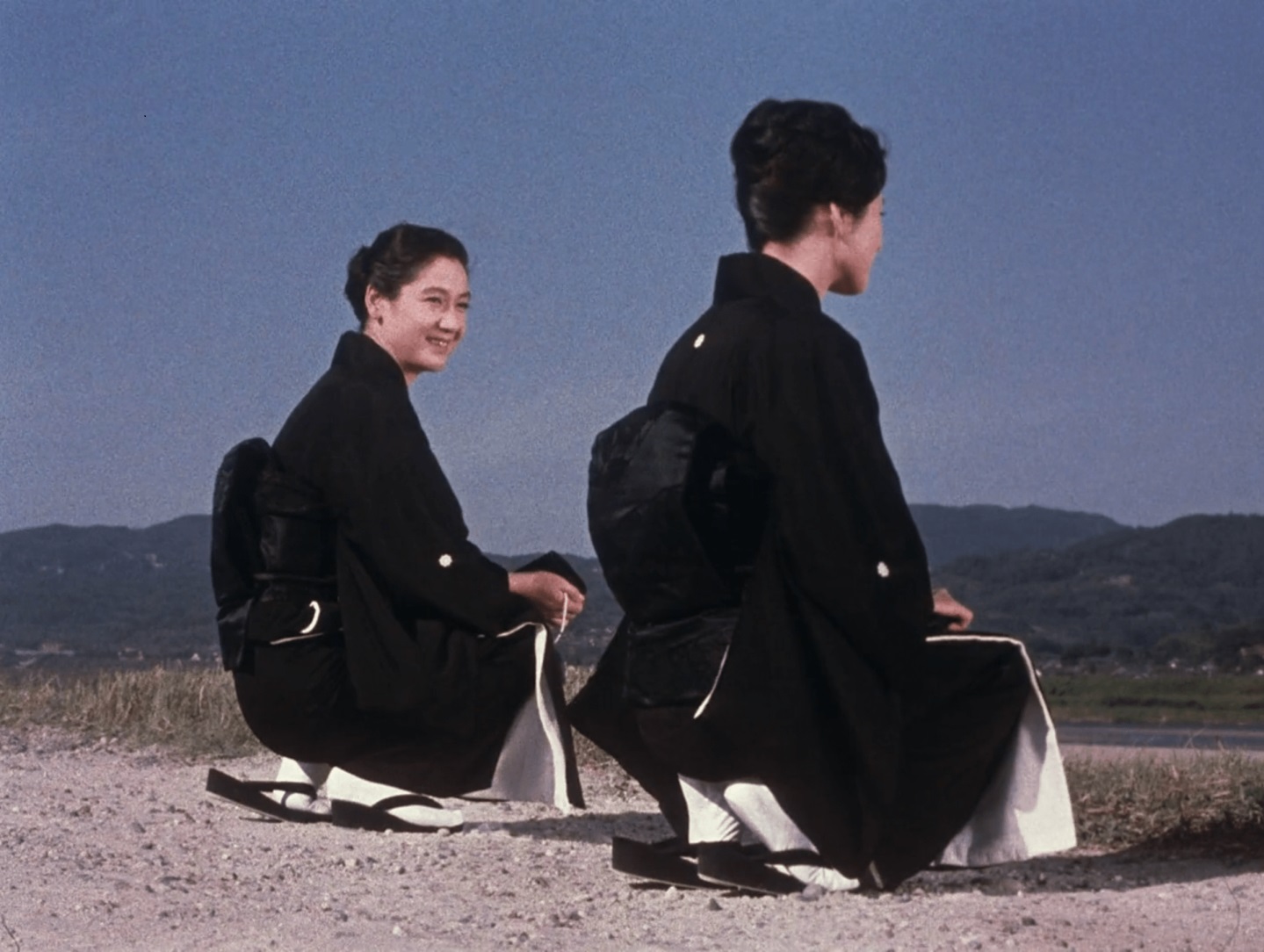
Thursday January 12 | 7PM The End of Summer aka Kohayagawa-ke no aki Japan 1961 d. Yasujirō Ozu with Setsuko Hara, Yoko Tsukasa, Michiyo Aratama, Keiju Kobayashi,, Chieko Naniwa, Reiko Dan, Haruko Sugimura, Hisaya Morishige, Daisuke Katō, Akira Takarada, Kyū Sazanka and Yū Fujiki. Colour. In Japanese with English subtitles. 103 m
“Hara, of course, is the lead female actor most closely associated with Ozu, her fame being primarily established by her roles in Late Spring (their first collaboration) and Tokyo Story, but who becomes ever more beloved by anyone who delves further into Ozu’s filmography and observes, in the six films they made together, her refined, subtle strength of character. Though I don’t see any evidence in The End of Summer that overtly indicated her imminent retirement from the motion picture scene, that’s exactly what happened. She shot two more films for other directors, but abruptly quit shortly after Ozu died in 1963, stepping away from her performing career at age 42, at the height of her fame and with her legendary reputation among Japanese actors still intact. She’s still alive today but has not made any public appearances since that time. Far from being the showcase for Setsuko Hara that we find in both Late Spring and Tokyo Story, The End of Summer is more an ensemble piece involving three generations of a family struggling to maintain its footing in a rapidly changing social landscape.” David Blakeslee
“‘Profound characterization’ seems to be a minor concern of the director compared to that of creating a delicately poised domestic panorama and in the process making workable some of the oldest tools in movie construction. Two people standing, sitting, kneeling, always amazingly decorous, deciding whether the family’s brewery will have to merge with ‘big capital,’ their conversation spaced out in one-shots of each speaker. Ozu is much more formalized than this 1930s early talkies technique suggests. Where Hawks is matter-of-fact and eye level at the two speakers, Ozu hieratically shuttles one-two-shots, the camera always on speaker, never on listener, and autocratically dismisses anything (no dolly, fades, punctuation) that smacks of movement or congestion.” Manny Farber
See Also: Late Spring (Ozu, 1949) Tokyo Story (Ozu, 1953)
Series: Winter 2023 :: Four Muses
